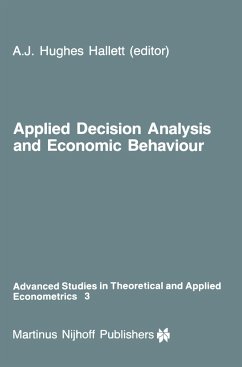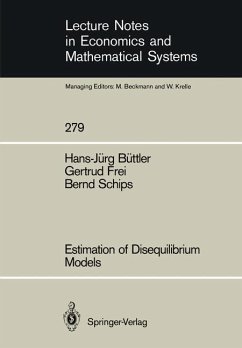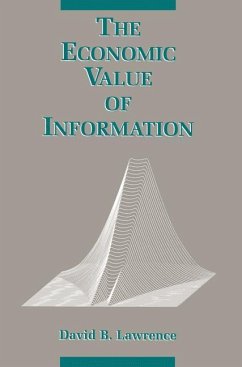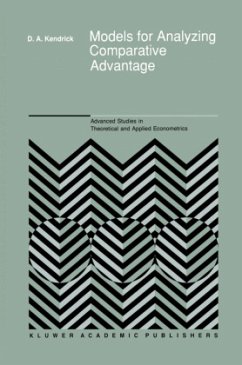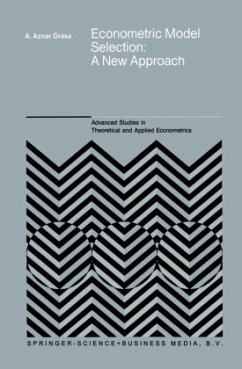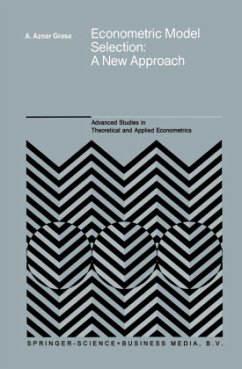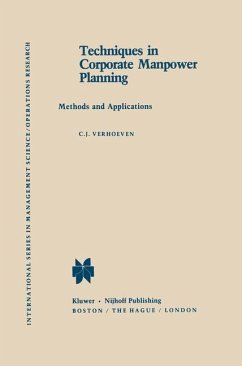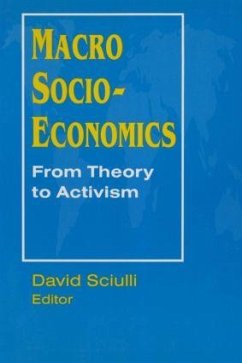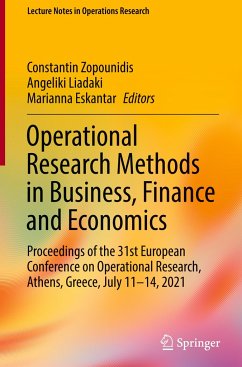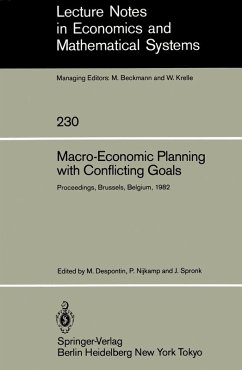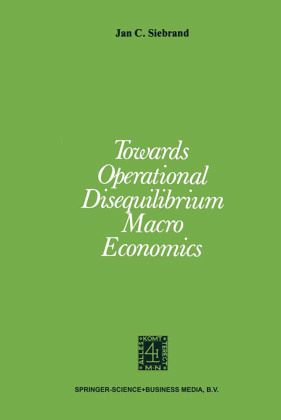
Towards Operational Disequilibrium Macro Economics

PAYBACK Punkte
20 °P sammeln!
Most re cent contributions to disequilibrium theory have a high level of abstraction. Empirical studies explicitly based on disequilibrium are still relatively scarce. However, empirical macro economics anticipated the theoretical development, and amalgamated classical and Keynesian elements often without a clear-cut formal base. Now a theoretical integration of neo-classical and neo-Keynesian economics seems under way. There is a renewed interest in the micro-economic foundations of macroeconomics with a special focus on the behaviour of economic agents operating in non-clearing markets. In s...
Most re cent contributions to disequilibrium theory have a high level of abstraction. Empirical studies explicitly based on disequilibrium are still relatively scarce. However, empirical macro economics anticipated the theoretical development, and amalgamated classical and Keynesian elements often without a clear-cut formal base. Now a theoretical integration of neo-classical and neo-Keynesian economics seems under way. There is a renewed interest in the micro-economic foundations of macroeconomics with a special focus on the behaviour of economic agents operating in non-clearing markets. In some instances these theoretical developments offer an ex post justification for empirical macro-economic practices. Generally however, they call for new ways of empirical macro-economic model building. This study operates on the border line between empirical macro economics and theoretical disequilibrium macro-economic theory. Our interest in macro-economic disequilibrium originates from theempirical side. Foreign trade relations for several countries revealed significant pressure of demand effects. Hence, the spillover of excess demand in domestic markets to foreign markets seemed a rather general phenomenon. This fact could be explained by a theory that states that actual demand for products from domestic ftrms will gene rally and systematically differ from the ex ante demand as suggested by equilibrium analysis. This latter demand concept comes close to Clower's 'notional demand' and Patinkin's 'potential demand'.



